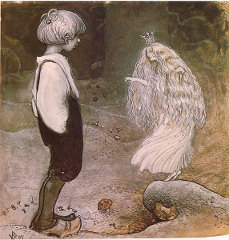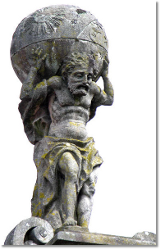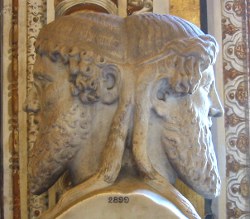Christians and Mythology (Part 7: Sub-creation, Escape, and Eucatastrophe)
 The rest of the series.
The rest of the series.
In this final post I want to focus further on Tolkien’s essay “On Fairy-stories,” which I referenced several times in Part 6. We looked at Recovery in the previous post, and I’d like to conclude this series with a look at Sub-creation, Escape, and Eucatastrophe.
Sub-creation
Before C.S. Lewis’s conversion to Christianity, he viewed myths as being worthless lies, despite their being “breathed through silver.” To persuade him otherwise, J.R.R. Tolkien wrote a poem titled “Mythopoeia,” in which he mentions the defaced image of God in man. Tolkien writes about the original mandate for man to exercise dominion over creation. Man is a “Sub-creator, the refracted light / through whom is splintered from a single White / to many hues … . / We make still by the law in which we’re made.”1 In other words, since we bear God’s image, though imperfectly, we create because God creates. We imitate and glorify the ultimate Creator as we engage in sub-creation. Tolkien puts it more clearly in “On Fairy-stories” when he writes about creating fantasy: “[W]e make in our measure and in our derivative mode, because we are made: and not only made, but made in the image and likeness of a Maker.”2 Of course, Lewis eventually came to agree with Tolkien, and they both used mythology to create their own myths.
On the contemporary scene, one Christian who I believe is excelling in the sub-creation of myths is Young Adult author N.D. Wilson, whom I mentioned in Part 1. Wilson’s second book in the Ashtown series (with characters such as Gilgamesh, Arachne, and Ponce de León) was released on September 11, 2012. Christians have lots of practice complaining about fiction they don’t like, but here is a Christian who is lighting a candle in the fiction world, rather than simply cursing that bespectacled Potter boy.
 The
The 


 Read
Read 

Discussion